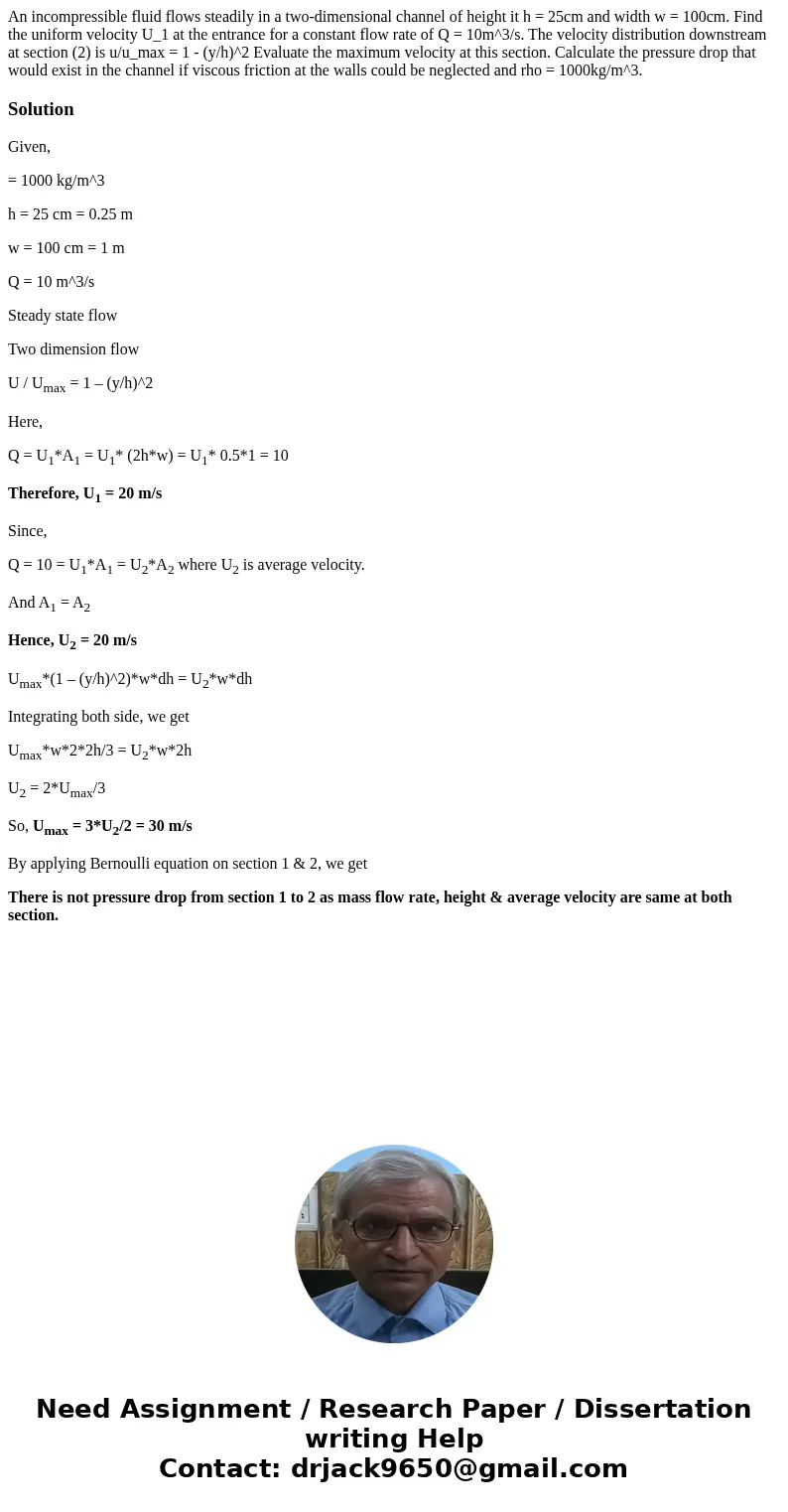An incompressible fluid flows steadily in a twodimensional c
An incompressible fluid flows steadily in a two-dimensional channel of height it h = 25cm and width w = 100cm. Find the uniform velocity U_1 at the entrance for a constant flow rate of Q = 10m^3/s. The velocity distribution downstream at section (2) is u/u_max = 1 - (y/h)^2 Evaluate the maximum velocity at this section. Calculate the pressure drop that would exist in the channel if viscous friction at the walls could be neglected and rho = 1000kg/m^3. 
Solution
Given,
= 1000 kg/m^3
h = 25 cm = 0.25 m
w = 100 cm = 1 m
Q = 10 m^3/s
Steady state flow
Two dimension flow
U / Umax = 1 – (y/h)^2
Here,
Q = U1*A1 = U1* (2h*w) = U1* 0.5*1 = 10
Therefore, U1 = 20 m/s
Since,
Q = 10 = U1*A1 = U2*A2 where U2 is average velocity.
And A1 = A2
Hence, U2 = 20 m/s
Umax*(1 – (y/h)^2)*w*dh = U2*w*dh
Integrating both side, we get
Umax*w*2*2h/3 = U2*w*2h
U2 = 2*Umax/3
So, Umax = 3*U2/2 = 30 m/s
By applying Bernoulli equation on section 1 & 2, we get
There is not pressure drop from section 1 to 2 as mass flow rate, height & average velocity are same at both section.

 Homework Sourse
Homework Sourse